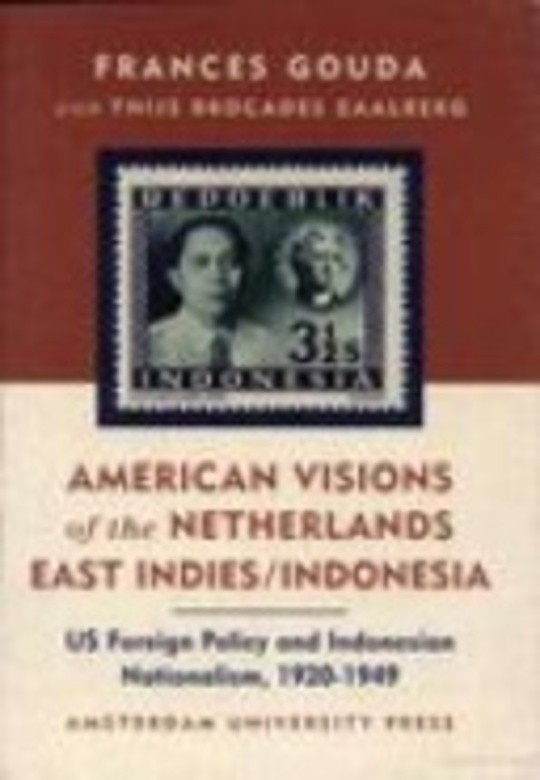
American Visions of the Netherlands East Indies/Indonesia
Free
Description
Contents
Reviews
Language
English
ISBN
90-5356-479-9
Table of Contents
Preface and Acknowledgments
Abbreviations and Glossary
Introduction
1 American Foreign Policy and the End of Dutch Colonial Rule in Southeast Asia: An Overview
2 “It’s 1776 in Indonesia”
3 The United States and the Dutch East Indies: the Celebration of Capitalism in East and West during the 1920’s
4 American Visions of Colonial Indonesia from the Great Depression to the Growing Fear of Japan, 1930-1938
5 The Specter of Japan and America’s Recognition of the Indonesian Archipelago’s Strategic Importance, 1938-1945
6 The Politics of Independence in the Republik Indonesia and International Reactions, 1945-1949
7 The Emerging Cold War and American Perspectives on Decolonization in Southeast Asia in the Postwar Era
8 Indonesia’s Struggle for Independence and the Outside World:England, Australia, and the United States in Search of a Peaceful Solution
9 Armed Conflict,the United Nations’Good Offices Committee, and the Renville Agreement: America’s Involvement in Trying to Reach a Settlement
10 Soviet Strategies in Southeast Asia and Indonesian Politics:US Foreign Policy Adrift during the Course of 1948
11 Rescuing the Republic’s Moderates from Soviet Communism:Washington’s Conversion to Unequivocal Support of Indonesia’s Independence
Epilogue
Archival Sources and Selective Bibliography
Sources of Illustrations
Notes
Index
The book hasn't received reviews yet.











